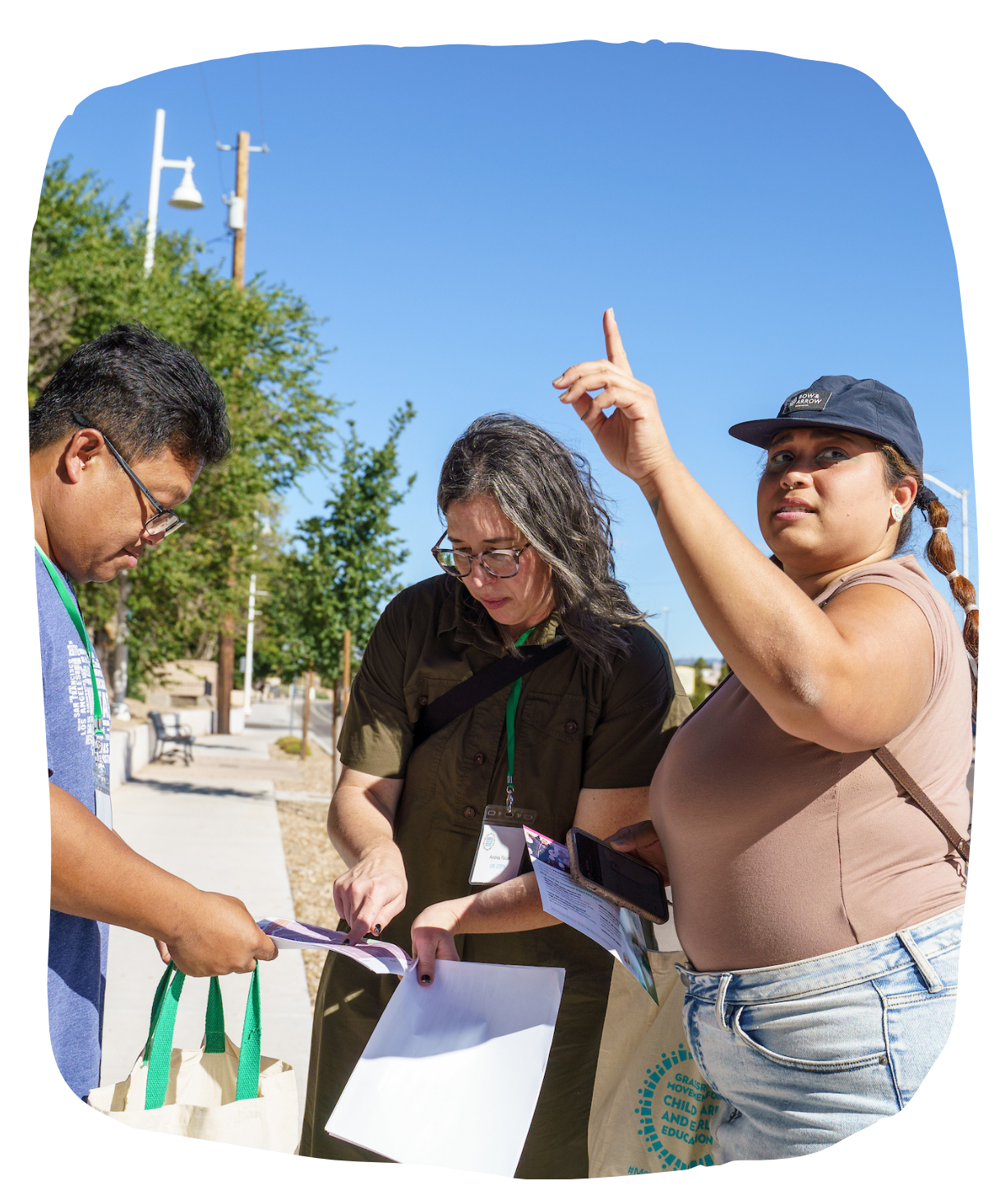OUR SHARED VISION & GOALS FOR CHILD CARE

Our vision is a country where every child and family has equitable access to publicly-funded child care and early learning opportunities that prioritize safety, development, and well-being for all children and families; and where the child care workforce is compensated in a way that is commensurate with the critical value of their work.
Our goals as a network are to…
➡️ Redefine child care and early education as fundamental for nurturing the well-being of children, supporting families to thrive, developing a well-supported care workforce with quality jobs and a pathway to a union, and contributing to a robust economy
➡️ Dramatically increase the public investment needed to build and sustain the infrastructure of a comprehensive and responsive system and ensure that policies surrounding additional resources are implemented equitably
➡️ Demonstrate the broad support that exists for a public child care system and the wide-ranging impacts on our communities by not having a robust child care system
➡️ Garner recognition and motivation from our elected officials and keep them accountable to act in ambitious and bold ways to establish the system we deserve
Our Policy Pillars
Program policies, practices, and standards are developed with equity in mind. This includes ensuring systems are created responsibly; training and professional development meet the workforce’s diverse needs; licensing, and monitoring standards are anti-racist; and payment practices, including reimbursements and other manners of payments, support a thriving workforce.
Families are eligible to and able to access the care they need. This includes multiple types of care, care that meets the needs of diverse children and multiple children within a family with differing needs; and access is irrespective of race, ethnicity, language, gender, literacy level, disability, immigration status, geographical location, socioeconomic class, economic circumstances, employment or income.
In a universal and publicly-funded system, families receive free child care and early education services without parental contributions, such as copays and fees, and without means testing.
The workforce is compensated (wages, benefits) in a way that is commensurate with the critical value of their work with children, families, and their support of the wider economy. This includes the workforce in centers, home-based programs, and relative (and other trusted) caregivers. Compensation, access to training and professional development, good working conditions, and pathways to organize into a union allow them not just to survive, but to thrive.
The child care and early learning system has resources devoted to attracting, retaining, and developing a racially and ethnically diverse workforce across all positions in a child care and early learning system. The child care and early learning system acknowledges that quality care can be provided in a wide range of settings, implements developmentally and culturally responsive curriculum options and ensures child-development assessment and screening tools are culturally and linguistically suitable.
The child care and early learning system is a fully funded entitlement by the federal government. Funding covers the true cost of care to allow for the workforce to be valued, supported, and competitively compensated. States and local communities support the equitable implementation, administration, and expansion of the program.
Those who are most impacted by decisions are meaningfully involved in the creation and implementation of the program, including involvement in decision-making at all levels of the system through advisory roles for policy decisions. Essential outcomes include family economic stability, the social/emotional health, the well-being of children, the stability of the child care workforce, identification of additional child and/or family needs, and more.
Quality standards, measures, monitoring, and support are for the purposes of building a foundation for children to thrive. Families and children have a wide range of needs. The child care and early learning system and its component parts are able to meet those varying needs: ensuring that all children are safe and nurtured in a developmentally appropriate, culturally, and linguistically relevant setting, at times and locations needed, with flexibility in the system to assure access to multiple care arrangements. The quality principles address quality caregiving; understanding and implementing “quality” (improving the research base); quality system; and quality programs.
The child care and early learning system is governed by centering justice and equity and focusing on equitable, multi-generational outcomes, rather than relying on punitive rule-based compliance. The governance structures include Federal, state, Tribal, and local roles, and co-governance with leadership and decision-making that is shared with families and child care providers. Requirements for ensuring basic health and safety of children in publicly funded care arrangements are consistent and developed at the federal level, collaboratively with child care providers and families.
Our Policy Principles Work Group

Our Policy Principles Work Group included members from state and national organizations, impacted parents and caregivers, and early childhood educators.
*Note that names reflect affiliations during work group participation
Andrea Paluso, Child Care for Every Family Network
Clarissa Doutherd, Parent Voices Oakland
Alexandra Patterson, Home Grown
Daniel Haines, NAEYC
Jennifer Rackliff, National Indian Child Care Association
Nina Dastur, Community Change
Stephanie Schmit, CLASP
Kristel England, Co-Lead of Parent Leadership Group
Robbie Bellamy, SEIU